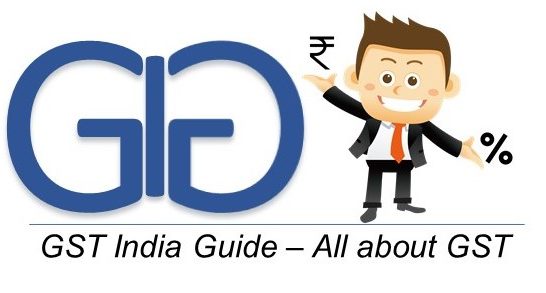Case Details:
| Particular | Details |
| Case No. | W.P. NOS. 6599 and 6601 of 2023 |
| Case Name | Sudhakar Traders v. State of Andhra Pradesh |
| Court | High Court of Andhra Pradesh |
| Date of Judgement | 25-04-2023 |
| Citation | CLS:0077 |
Issue- In the above case, the petitioner was engaged in supply of iron and steel purchased from the resident registered taxable persons. The petitioner was a registered dealer under the APGST Act and also an assessee on the file of 3rd respondent herein. The petitioner submitted its returns for the taxable period April 2019 to March 2020 and April 2020 to March 2021. The 3rd respondent, on having received alert note vide R.C.No.158/C/2020 dated 21-12-2022 from the Regional Vigilance & Enforcement Officer/2nd respondent, scrutinized the aforesaid returns and found the suppression of sales turnover in the returns submitted by the petitioner for both the taxable periods and accordingly, issued notices of intimation dated 28-2-2023 regarding the discrepancies in Form GST ASMT-10 under rule 99(1) of the AGPST Rules r/w Section 61 of the APGST Act and called for the payment of the due tax/explanation within fifteen days of the receipt of the notice. Petitioner contended that there is no provision authorizing the Director of Vigilance & Enforcement in the State to conduct inspection of the business premises of a registered dealer under GST law. Therefore, the impugned notices issued by 3rd respondent on the strength of the alert note forwarded by 2nd respondent is a gross infraction of the GST law and on that ground alone the impugned notices are liable to be set aside as they are based on the unauthorized alert notes. He further argued that even assuming for argument that the 2nd respondent has power to inspect the premises of the petitioner but still he cannot himself forward any alert notes to the 3rd respondent for the reason that under section 72 of the APGST Act, whenever the Chief Commissioner required the assistance of any public officers for implementation of the provisions of the APGST Act, he may call upon to do so and on his requisition the Government may by notification empower and require any class of officers other than the officers mentioned in sub-section (1) of section 72 to assist the proper officers in implementation of the Act. There is no material to show that either the Chief Commissioner issued any requisition to the Government seeking assistance of the 2nd respondent being the Regional Vigilance & Enforcement Officer or the Government issued any notification to that effect. Therefore, the impugned notices fell foul of the canons of law.
Held- It was held that from perusal of the G.O.Ms.No.504, General Administration (V&E-A) Department, dated 25-11-1997 produced by learned Government Pleader for Home shows that the Vigilance & Enforcement Department was constituted by the Government of A.P. vide G.O.Ms.No.269, General Admin (SC.D) Department dated 11-6-1985 to conduct enquiries/investigations into specific allegations affecting public interest and to take effective measures through its own machinery and achieve several objectives, one of which is prevention of leakage of revenues due to the Government. In the said G.O., it is further stated that the V&E Department is expected to carry out vigilance functions where Government spending is involved and enforcement functions in respect of the revenues due to the Government. The Head Office of V&E was reconstituted into following four wings vide office order No. 283, G.A (V&E) Department dated 3-8-1995 such as Revenue wing, Engineering wing, Development works wing and Natural Resources wing. Thus, the above G.O. pellucidly tells that the enforcement functions of the V&E Department inter alia are to safeguard revenues due to the Government and in that context it is permeable in all the departments including the Tax department. Therefore, Hon’ble Court agreed with the submission of the learned Government Pleader for Home that in the matter of protection of revenue due to the Government in the form of taxes, the officials of the V&E Department, if need be, can make inspection in the premises of taxable traders. During course of such inspection if the officials of the V&E Department found the attempts of such traders in evasion of tax, they can pass on the information to the concerned tax department. In our view, it was an exchange of information between two statutory authorities for safeguarding the revenue due to the Government. Therefore, the hon’ble court was unable to accept the contention of petitioner that the 2nd respondent has no statutory right to conduct inspection in its premises and forward the alert note to the 3rd respondent and the latter cannot act upon such information. It is true that when the Chief Commissioner requires the assistance of any other class of officers other than those mentioned in sub-section (1), he may require such assistance and the Government may issue notification in that regard. However, apart from that, the Government with an avowed object constituted V&E Department under G.O.Ms.No.269 and assigned certain functions, one of which is to safeguard the revenue due to the Government. In that context, the officers of the said department can share the relevant information with the Commercial Tax Department and assist them without any prior requisition. The powers conferred under G.O.Ms.Nos.269 and 504 are independent and exclusive and they are in aid to the Tax department but not in derogation to section 72(2) and therefore, there is no conflict between the powers and functions of the V&E Department and the power of Chief Commissioner to make requisition to the Government under section 72(2) of the APGST Act.

